Representatives of the Education and Research Institute "UIPA" Participated in an Online Training on Key Aspects of Modern Compliance Management Within the EUComplianceM4UA Erasmus+ Project
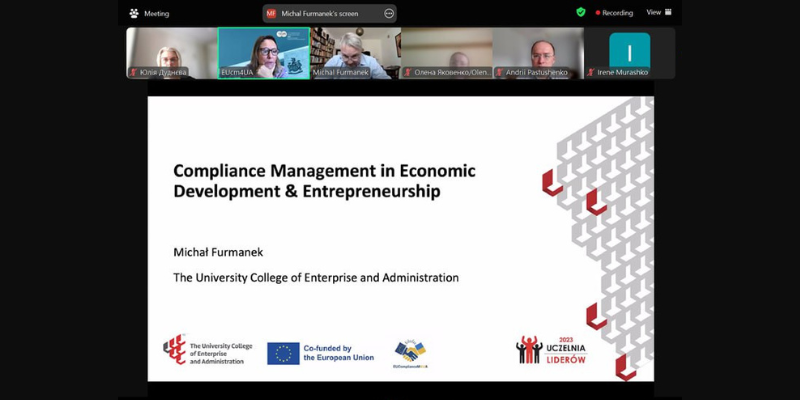
In April–May 2025, an intensive online training was held as part of the international EUComplianceM4UA project supported by the Erasmus+ CBHE programme. The training covered the key aspects of modern compliance management. Over eight training days, participants from Ukraine, Portugal, Poland, the Czech Republic, and Germany engaged in a shared educational environment, exploring the strategic, legal, ethical, managerial, and digital dimensions of compliance.
The main goal of the training was to foster a new culture of academic teaching in compliance education, promote interdisciplinary exchange, and prepare for the integration of innovative solutions into the curricula of partner universities in Ukraine.
The training programme included four main stages:
April 22–23 (Universidade Portucalense, Porto, Portugal):
The opening session focused on the legal foundations of compliance management, the interplay between legal systems and business cultures, and the role of artificial intelligence in adapting compliance procedures. Special attention was paid to anti-corruption regulations in the EU, UK, and US (EU Directive, Bribery Act, FCPA).
The second day addressed business ethics and the practical implementation of compliance in risk management. Participants learned about building ethical cultures in organizations, implementing internal compliance systems, responding to ethical violations, identifying zones of ethical risk, and using strategic tools to promote integrity-based leadership.
April 24–25 (Wyzsza Szkoła Przedsiębiorczości i Administracji, Lublin, Poland):
Polish colleagues presented an interdisciplinary view of compliance in public administration, local governance, and business. Discussions focused on how compliance supports economic development, builds investor trust, and acts as an effective tool against financial misconduct.
Participants explored transparency policies, internal audits, ethical compliance policies, and the formation of professional teams responsible for implementation. Reputation risks and the consequences of non-compliance — such as loss of trust from clients, partners, and society — were also discussed. Practical case studies from business, education, and the public sector were analyzed, comparing European compliance approaches to Ukrainian realities, especially during wartime and economic transformation.
April 29–30 (University of Chemistry and Technology, Prague, Czech Republic):
Topics included ethical governance, resolving ethical dilemmas, creating corporate codes of conduct, and social responsibility. Participants discussed core principles of ethical management, the importance of transparency, accountability, and integrity as foundations of institutional trust.
The training addressed ethical risks in procurement, moral climates within organizations, behavioral factors in decision-making, and current challenges in social and regulatory compliance. A separate session focused on developing corporate ethics codes as tools for guiding expected behavior and managing reputational risks. Case studies examined conflicts between economic benefit and ethical standards and highlighted mechanisms that support business resilience and prevent violations.
May 7–8 (Hochschule Wismar, Wismar, Germany):
The final module covered legal requirements in European regulation, social compliance, data protection, digital transformation in education, and ESG strategies.
Significant attention was paid to social compliance in higher education, workers’ rights, gender equality, digital integrity, and due diligence in partner vetting. Participants were introduced to modern approaches to teaching ethics and compliance, including digital tools, ethical culture development, and effective educational strategies.
Topics also included ESG integration, avoiding “greenwashing” in reporting, consumer protection, and corporate responsibility. A special focus was given to compliance in transitional economies, highlighting the Ukrainian experience with digital registries, anti-corruption mechanisms, open data policies, and transparency under wartime conditions.
Key Outcomes:
-
16 speakers from 5 countries;
-
8 days of intensive learning;
-
Interdisciplinary approach: law, management, ethics, digitalization, and education;
-
Practical case studies, interactive discussions, intercultural dialogue.
From the Education and Research Institute “UIPA” of V. N. Karazin Kharkiv National University, the following project team members actively participated in the training: Maryna Vasylieva, Roman Nesterenko, Viktoriia Chobitok, Yuliia Dudnieva, Yuliia Bezugla, and Tetyana Kostrova. They contributed to discussions and presented their vision of adapting European approaches to the Ukrainian context.
The international training demonstrated the high level of professional preparedness of Ukrainian participants, the relevance of European practices to the Ukrainian setting, and the necessity of integrating compliance as an interdisciplinary competence into university curricula in Ukraine.



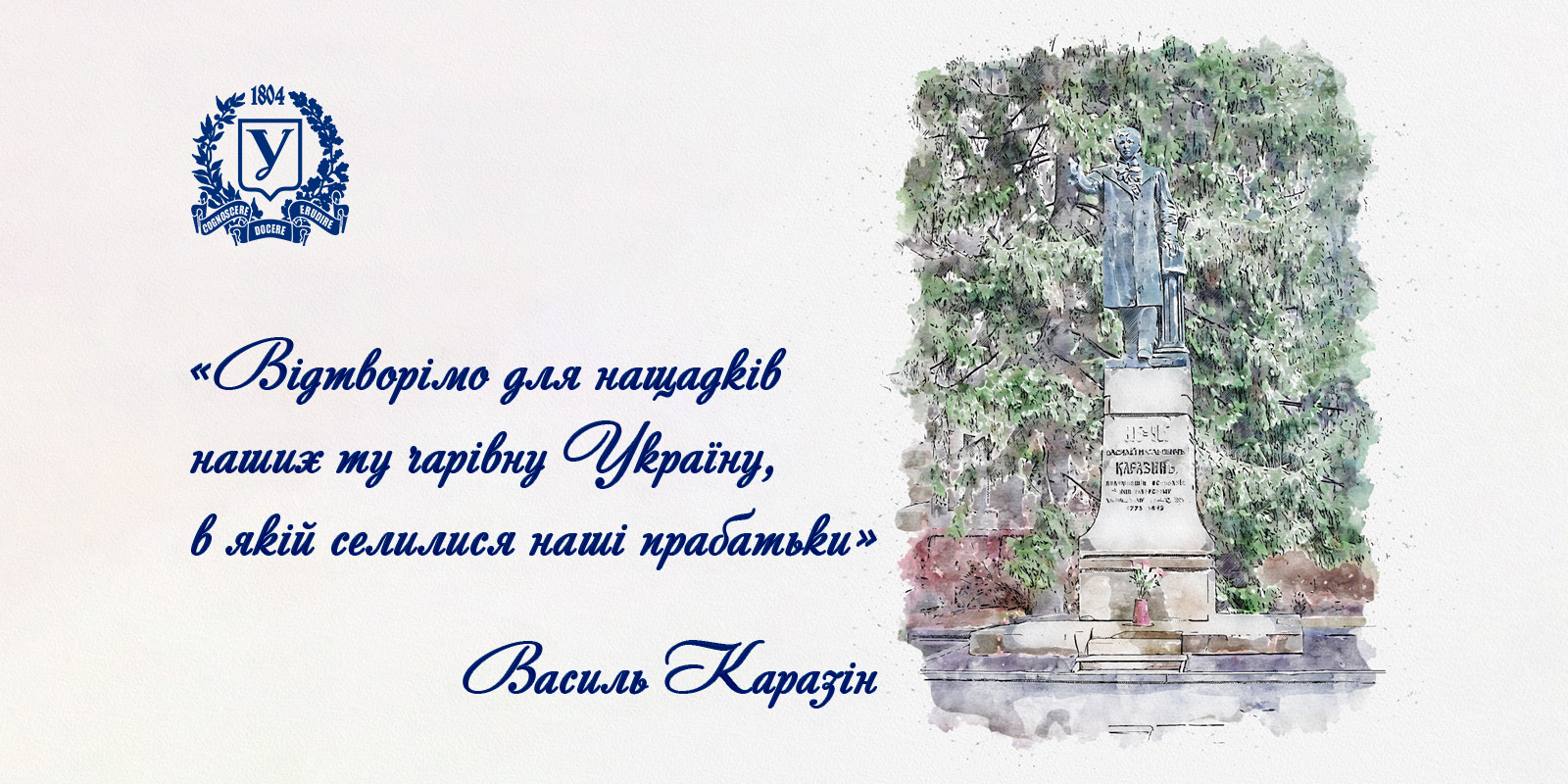
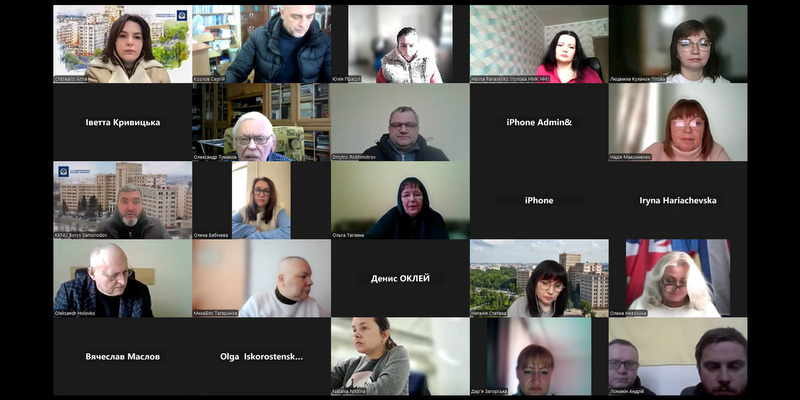
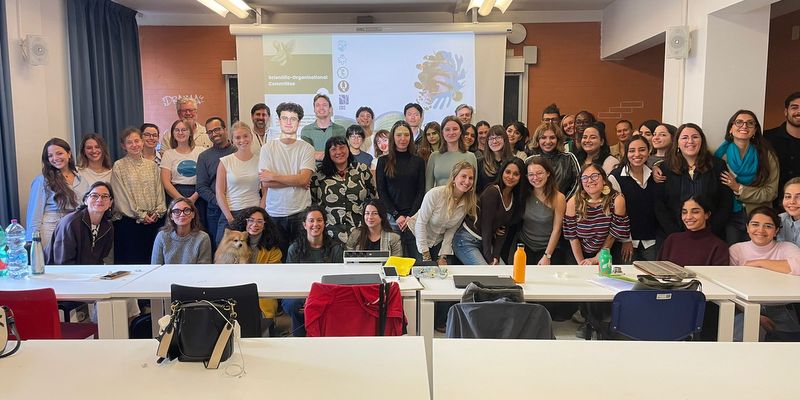
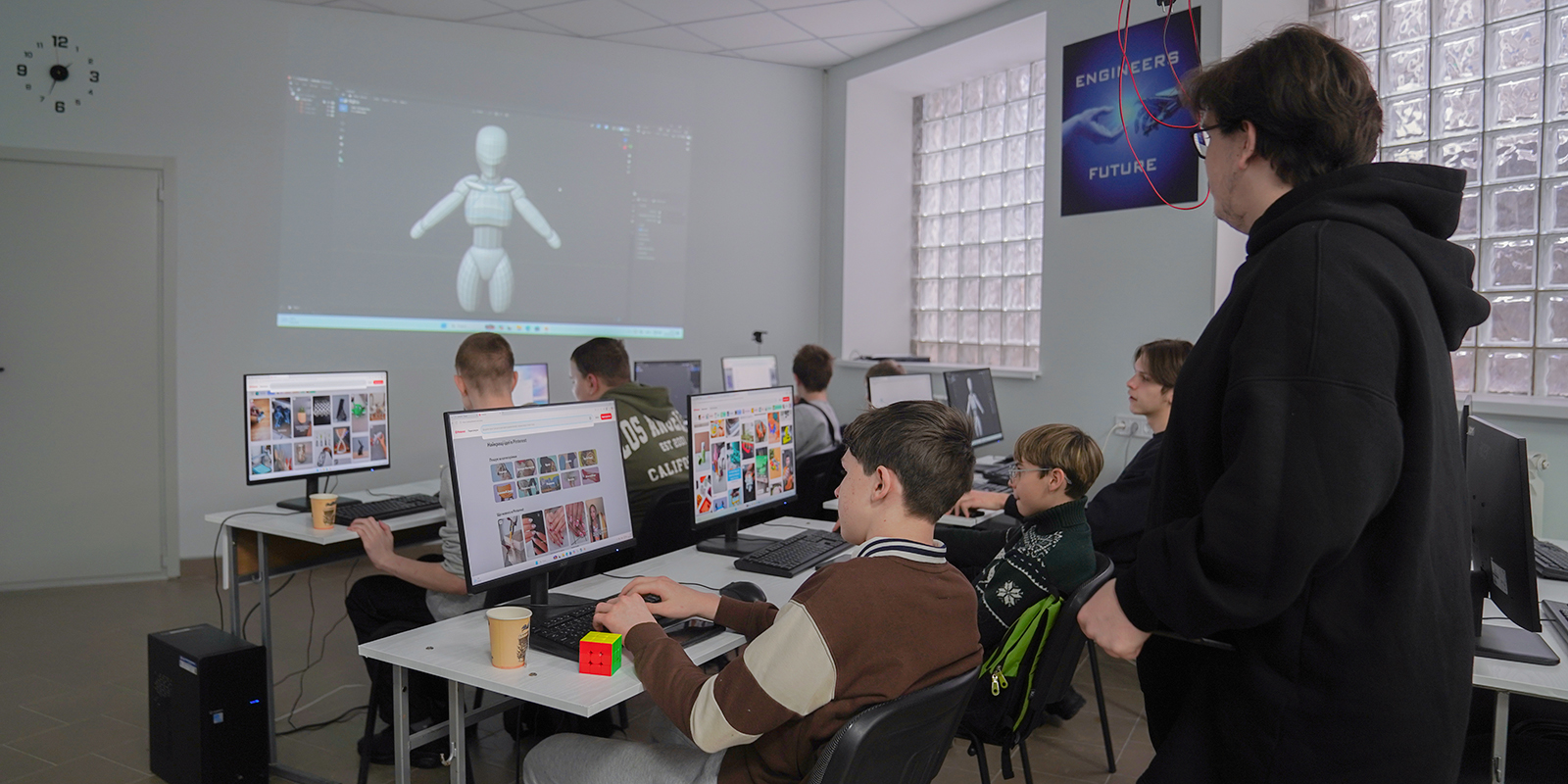
.jpg)
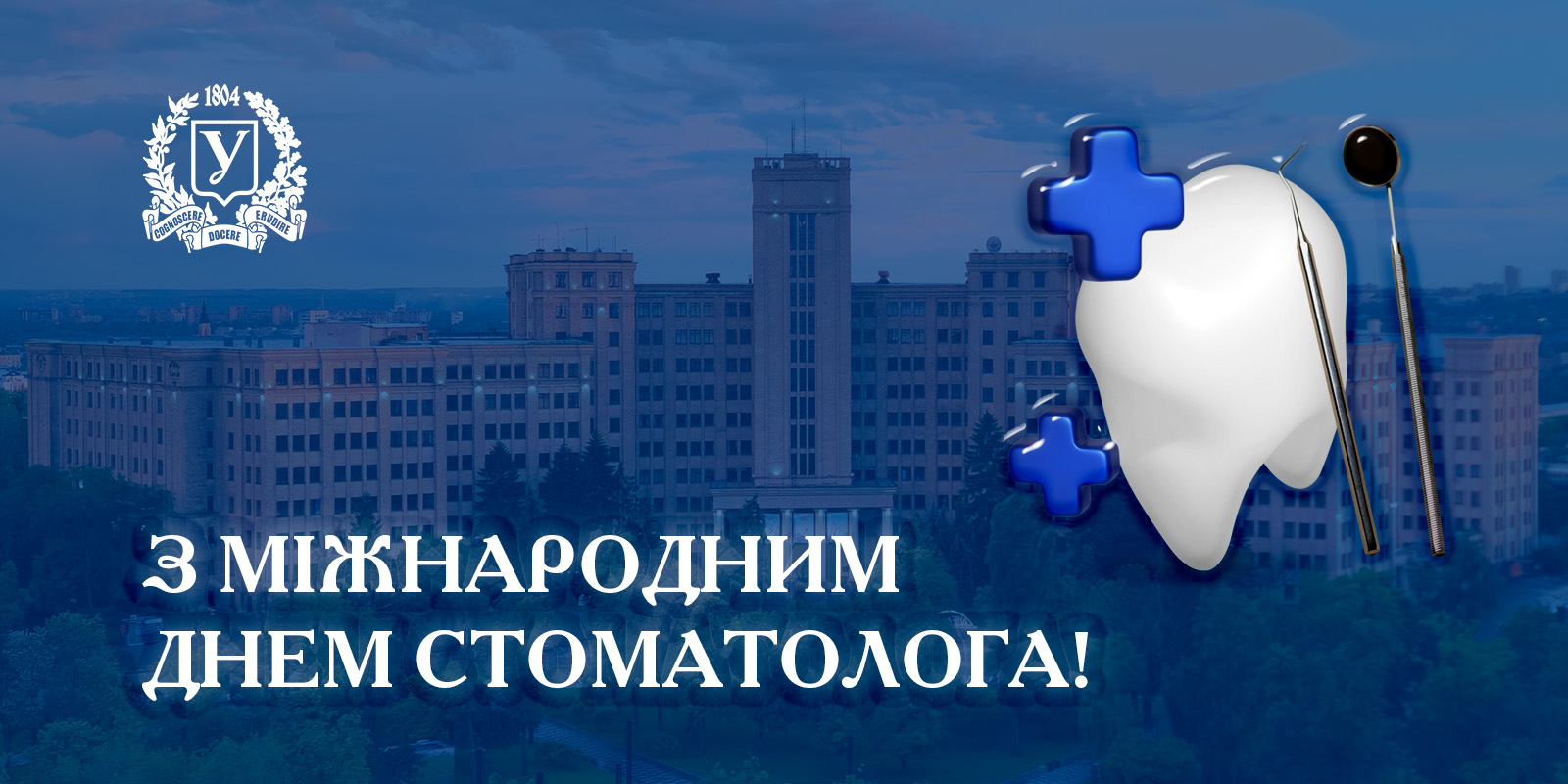
%20(1).jpg)

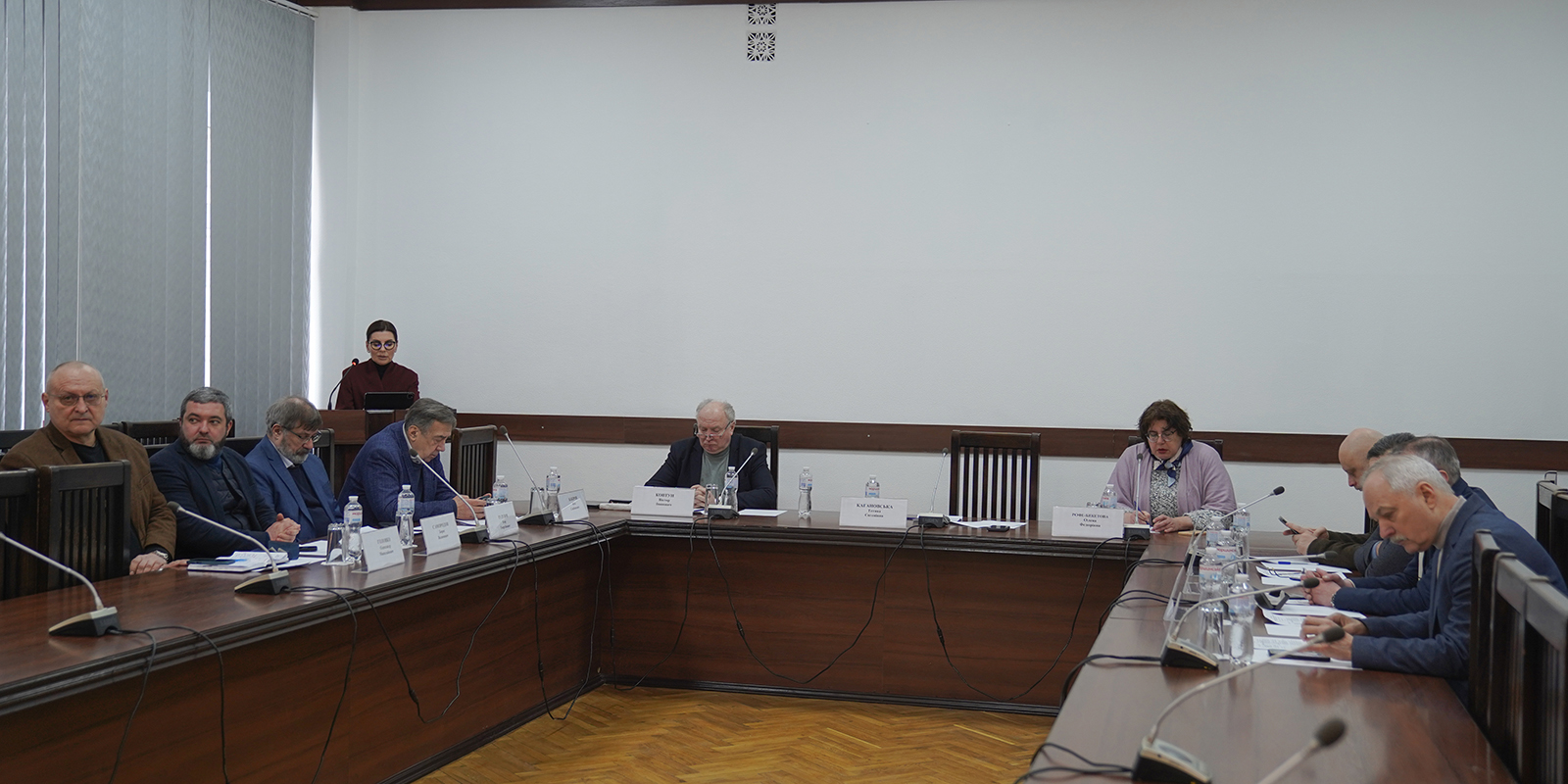
%20(1).png)